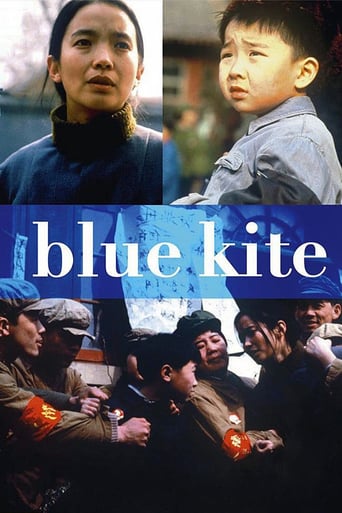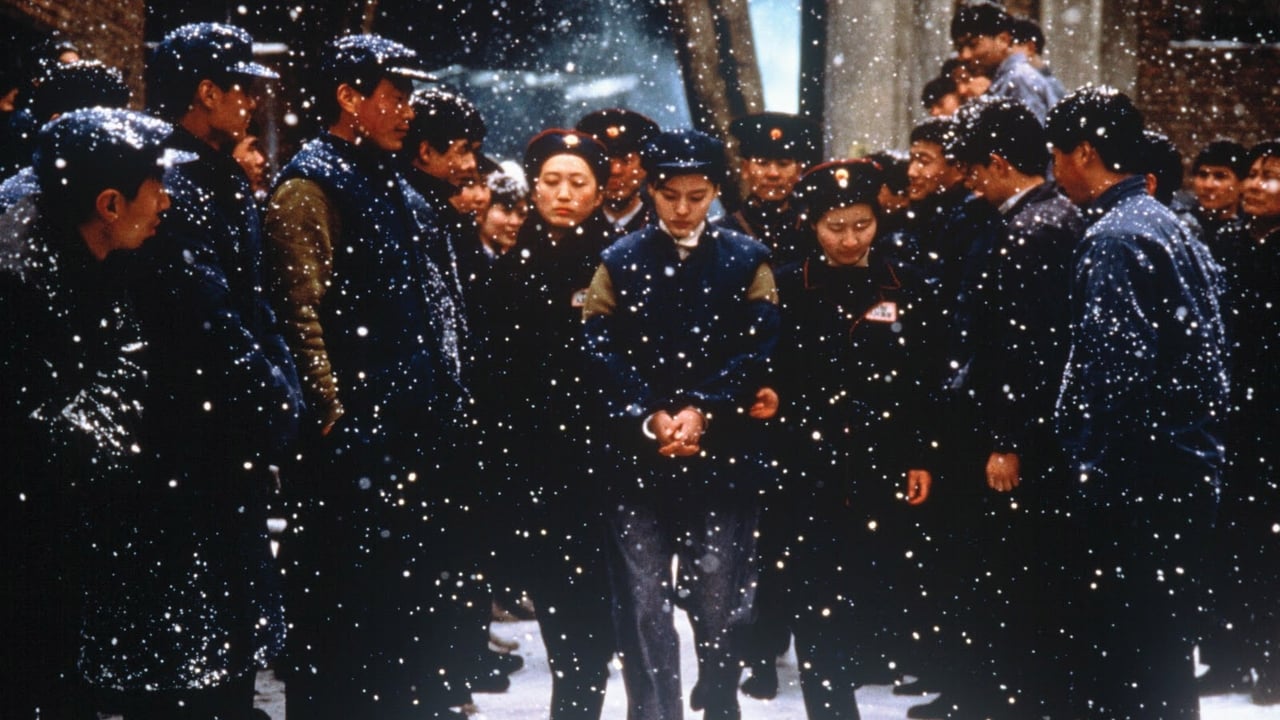saymonja-148-363330
I had to add a review of this movie, mainly because of certain reviewers choosing to criticize the politics instead of the actual film. To all of you budding western Mao-apologists...before you debate the merits of this story and the veracity of its presentation of life, you should consider learning Chinese, going to China, and talking to people. You will learn two things: 1)this period of time was hidden from an entire generation and is only now being discussed, re-examined and virtually condemned by China. 2)The culture of fear, paranoia and brutality among ordinary citizens is very real and its memory, and vestiges of it, still exist in those old enough to remember that era. Understanding this film is key to understanding the century of virtual trauma that China underwent, at the hands of others and then at the hands of its corrupt, megalomaniacal leaders and even its own people. And if one finds the tone a bit dark, remember: at the time of this film, the Tianamen square crackdown (that still is largely unknown in China...none of my college or high school students had ever heard about it...) was only 4 years old. China today is full of hope and looking forward, but still afraid to speak about the past.
Emil Bakkum
The film The Blue Kite is a typical example of the informal censorship of alternative opinions in our modern liberal societies (especially with regard to the competing bolshevist and Islamic societies). Remember that until the seventies the liberal governments prohibited the travel to China. Films and books in favor of those alternative ideologies are (in general) not strictly forbidden, but nevertheless they are not readily available - except for the products of dissidents. The suppression of the diversity of speech proceeds in two stages: at first, the liberal media (press, TV, which monopolize the news) glorify liberalism and give a distorted view of alternative ideologies. Then, after the public is made prejudiced, there is no commercial market for the distribution of the alternative films etc. It goes without saying that the distributors themselves are not particularly eager to sell those antagonistic views. The Blue Kite shows a dissident perspective of China, and thus is highly acclaimed by the liberal lobby. However, in The Blue Kite the critique of Maoism is too one-sided, and it actually backfires. We see the life of small town folks during the rectification movement, the great leap forward and the cultural revolution. Examples of scenes? One of the main characters is present in a meeting of workers that has to identify subversive colleagues. The chairman strives to reach his quota of subversive elements. So, when our main character visits the lavatory, he is quickly labeled subversive and sent to a labor camp. Another scene: a female soldier refuses to return the advances of high party officials and is subsequently sentenced to a long imprisonment. The film is a string of wrong-doings, which were probably fairly common at the time. But still they are incidents, which could have happened equally well here in the Netherlands. This leaves the viewer with the feeling, that The Blue Kite is actually trying to split hairs. I found the critical Chinese film To Live much more humane and credible. An objective judgment should probably call Maoism a twisted ideology, but admit that there are worse alternatives. It should be remembered that a century ago China had been invaded and ravaged by western imperialist powers, and subsequently Japan continued this terrorist intervention. After WWII there was the civil war with the nationalists, which may perhaps be called a peasants revolution. Although it included a restructuring into collectivity, this can definitely not be called a socialist reform. The Chinese economy was and is based on primitive agriculture, with regularly returning threats of famine. Maoism offered a solution, and erected basis health care and educational provisions. In addition it had to reconcile with the former opposition and handle sabotage. The life expectancy under Maoism was always longer than in the democratic India. In fact the cultural revolution is an intriguing phenomenon. A primary aim was to strengthen the bond between the common people and the intelligentsia. Here in Europe this generated admirable examples of self-sacrifice, like a student movement into the factories and working-class quarters, albeit only on a sectarian scale. In the very poor China it was a waste of scarce expertise and efficient labor division. It is estimated that over three million people were killed during the Cultural Revolution, which nearly transformed into another civil war. On the other hand, the equivalent in Afghanistan would be hundred thousand killed, which is approximately the factual score due to the Afghan revolution led by Nato. Therefore most Chinese people can still appreciate Mao. And frankly speaking, I can not recommend The Blue Kite, except perhaps for its portrayal of Chinese village life. I am still waiting for the release in our society of the load of Chinese films with a sympathetic message about Maoism.
orocolorado
If this movie is banned in China and considered daring imagine what one told by an unsympathetic non communist would be like. For the fact is that all the characters in this film appear to be more or less kowtowing to the communists or aspiring party members themselves. One of the harshest things you hear is an old woman who wonders if there has been enough revolution. In fact it has the feel of a communist propaganda movie with eager smiling people who never complain. Various sources estimate that between 15 to 40 million people starved during the great leap forward...you would not get that impression from this film. I want to see what the real truth and tragedy were like. This is just a pale start.
QueenofBean
This film is right up there in educating the masses on a bold, but chilling truth. The first time I saw this movie it not only made me cry, but it haunted me for weeks. Exposing the truth has been a difficult endeavor when it comes to China, but this is one of those films that has done it with grace and style.


 AD
AD


